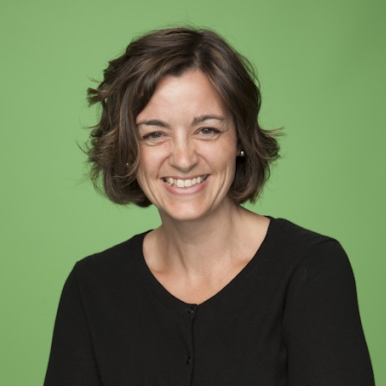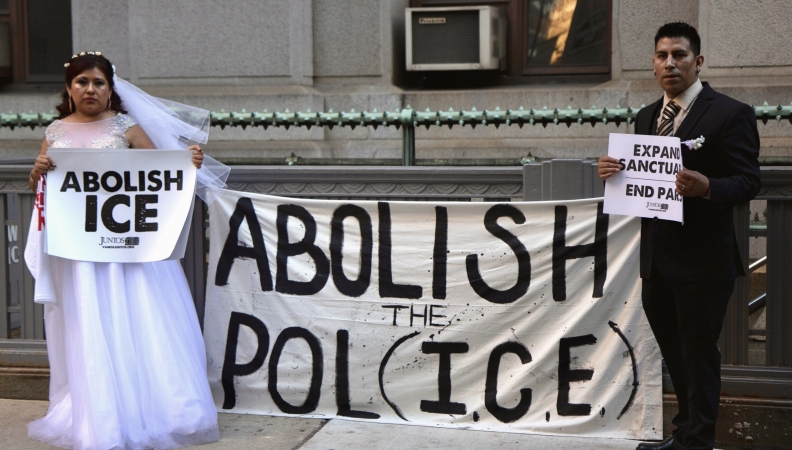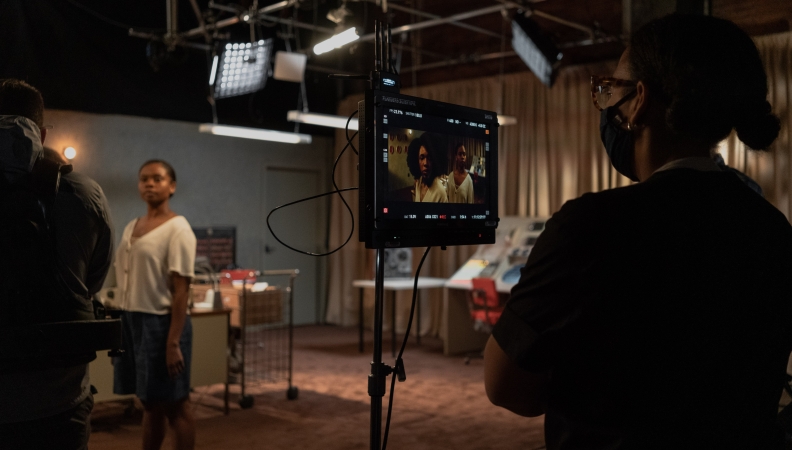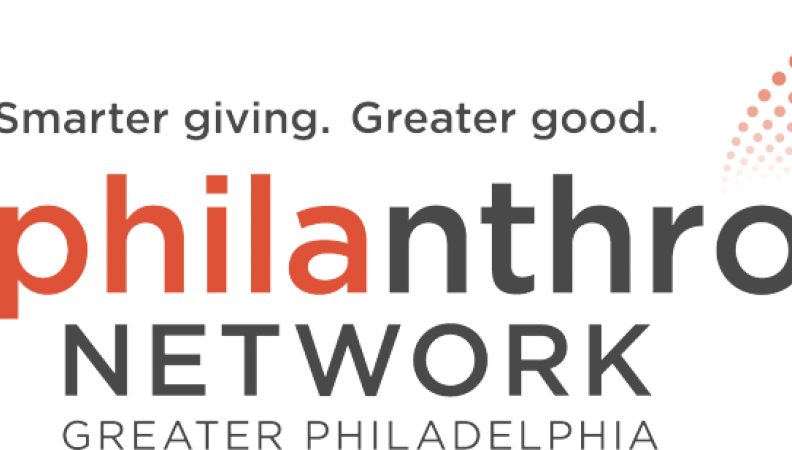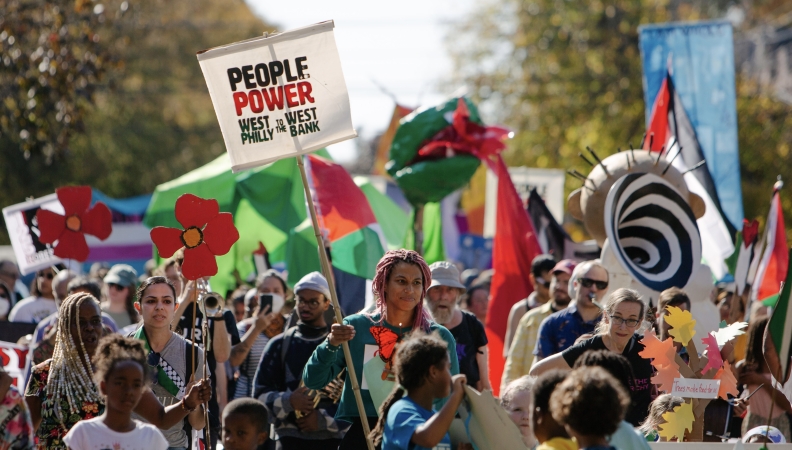Lessons From 5 Years of Building a New Philanthropic Foundation
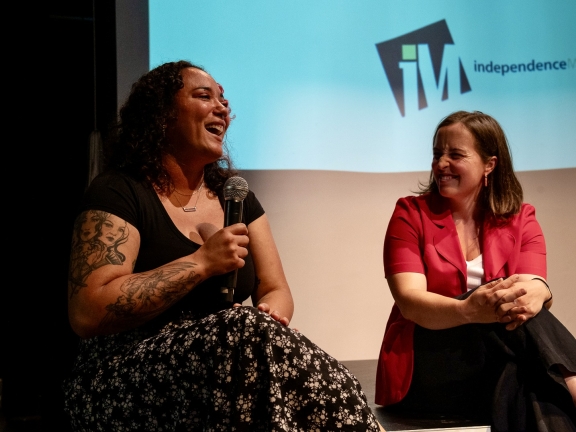
When I joined Independence Public Media Foundation (IPMF) as its first president in 2019, I was not new to philanthropy, and not new to building something from scratch, but I was new to leading a foundation.
IPMF has a unique back story as WYBE, a small, creative public television station serving the Philadelphia region, which sold its rights to broadcast in exchange for a one-time payment of $131.5 million through the Federal Communications Commission Broadcast Incentive Auction. With these funds, we became a private foundation with a vision for community power fueled by a robust local media landscape in which communities create and share their own stories, dismantle harmful narratives, install and manage neighborhood internet networks, and use their storytelling to grow social justice movements. To date, we have invested nearly $60 million in community-owned media and internet across the region.
All the while, we have made no secret about our desire to change philanthropy itself. We have resisted creating opaque and extractive processes that the field is known for, and communicated transparently about our work. We have and will continue to share ideas and examples, and challenge our philanthropic colleagues to invest in trusting, community-centered processes.
Five years in, these lessons are not entirely new to me, but from this different position I now occupy, they are more clear and more urgent.
Community-led grantmaking is liberating.
Our work at IPMF is guided by a commitment to community self determination, and that requires us to center their expertise and knowledge, and to shift our resources and decision-making power to them. Two of our three grantmaking cycles are community-led, which means that their decisions are final. Our role is mostly administrative while supporting any part of the process where our partners ask for guidance. Collectively, the facilitator (also a community member) and the panelists bring a rich and intimate perspective and understanding of the community’s needs, and allocate the resources where they believe are most needed.
Few people inside of philanthropy—board and staff—would openly admit how much they like to hold the purse strings, convinced by their expertise and their aptitude for making smarter decisions than others would. I was one of those people too. But it is contradictory to support the people “closest to the problems,” as is so often said in philanthropy, by making decisions for them. In reality, releasing our need for control and trusting communities to make the best decisions for themselves is as much a gift to ourselves—of freedom from the hierarchy and demanding processes inside our institutions—as it is to the community, who are also freed from the hierarchy and demanding processes of our institutions.
Shifting from foundation-led to community-led grantmaking is a process that can start with small steps. We began by asking community partners for nominations back in our first year of grantmaking in 2019. We then experimented with open calls for applications in 2020 and 2021, which helped us establish the administrative structure we needed to manage an unpredictable and potentially large volume of applications. In those years, all staff (there were four of us then) read the applications and collectively made the decisions. In 2022, we made the transition to a fully community-led process, with a facilitator and a group of panelists who are paid to read proposals and collectively make grant decisions.
With each iteration, we learn from our partners’ experience and use their questions and feedback to try to improve the process for them in the next round.
I’ve shared elsewhere that our two community-led grantmaking cycles focus on project support and represent a fairly small percentage of the overall funds that IPMF distributes every year. I think it’s important to be transparent about this, and to acknowledge that where we are now is not yet where we aspire to be. As an organization with a commitment to community-owned media and internet in the Greater Philadelphia region, we make some grants decisions to ensure that organizations vital to the local media ecosystem receive sustained, multi-year operating support. For now we hold this contradiction of retaining control over a significant amount of our resources, and we will continue to challenge ourselves to shift our power and resources to the community.
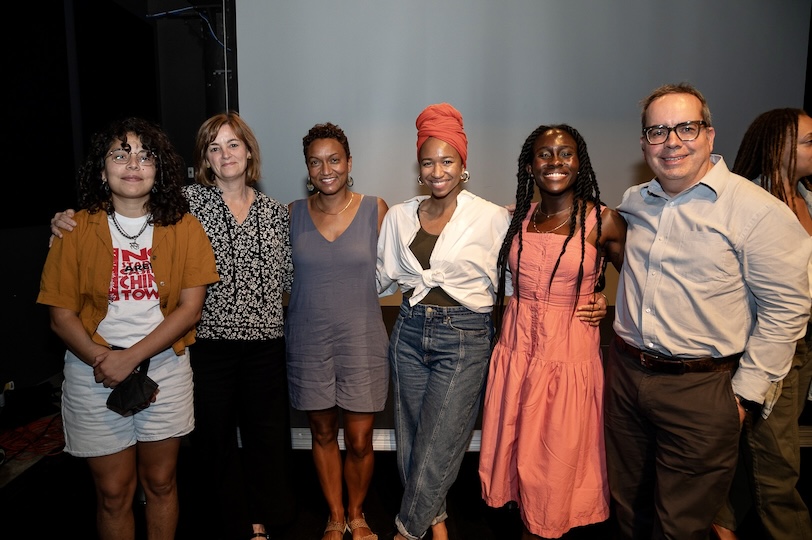 The IPMF team at the 2024 Fall Film Screening
The IPMF team at the 2024 Fall Film Screening
Skillful facilitation is undervalued and underdeveloped.
Near or at the top of my list of advice to aspiring leaders (both staff and board members) is to become skillful at facilitating group conversations, decisions, and dynamics. I’m talking about something more expansive than orchestrating productive meetings, where the agenda is clear, people feel included, and time is well managed. Those skills are important, and also relatively easy to learn. Harder to master is knowing a variety of decision-making techniques and when to use them, using creative activities and play that draw out people’s strengths and joy, uncovering implicit assumptions and expectations that may not be known to everyone, making space for challenging discussions, stopping conversations from being hijacked, sensing when to reframe questions and decisions, and perhaps hardest of all, helping people hold one another accountable.
The difference that skilled facilitation can feel like when you experience and benefit from it is profound. I think about a particular example of our group spending months trying to build consensus around a decision where clearly there wasn’t consensus, and how frustrating it was for all involved to talk in circles and not come to a decision because the conversation was kept open. When we switched to a consent-based decision-making process, where we were asked whether we could live with a particular decision and people had opportunities to clarify and make suggestions, it completely changed the situation and resulted in quickly agreeing that we could all live with it.
This was a watershed moment for us that opened our minds to new ways of working together; it helped us see what was possible when we went down a different path together. In subsequent months, it led us to prioritize learning about alternative forms of governance, rethink how we make decisions and share leadership, redistribute the power that had been codified in our roles and policies, and build more meaningful and joyful relationships and time together.
We are lucky to have people who bring these skills to our organization, who help us all learn and practice together. There are also many excellent organizations that offer all levels of facilitation training. As one example, our staff found AORTA’s “Facilitate for Freedom” anti-oppression facilitation fundamentals an inspiring and invigorating experience, and AORTA’s Resource Zine is a useful guide.
You might be one of the bad guys.
Many years ago, I had a conversation with a creative and insightful person about philanthropy and its intersection with the human need to build and have structure in our lives. Digging into this concept, he co-founded a philanthropic project that experimented with the minimum amount of structure needed to make grants. If you are imagining giving grants as cash in paper bags with no application process, you are correct; that did happen in the beginning.
Contrast that with institutional philanthropy, where there’s so much structure, it’s suffocating. The pervasiveness of the policies and systems and rules is what helps foundations hoard their wealth and minimize risk taking, yet almost none of that structure is legally required. If there’s the will to do it, it can be dismantled from the inside.
We can start by examining what policies, processes and norms we have in place inside our own institutions that can be eliminated or redesigned. At IPMF, we recognized how power was centralized in our board committee structure and our board officer descriptions. We rewrote the officer position descriptions to de-emphasize the power of the officers, and in particular the board chair, and instead emphasize a commitment to distributed leadership across the organization. We reinvented our board committees as board + staff “Teams,” with a pledge to treat each other as peers and partners. Taking these steps also made it obvious to redesign our board meetings, and practice rotating roles and different decision-making techniques. Everyone participates, everyone gets opportunities to lead, everyone’s contributions matter. All of these actions have helped bridge the power imbalance that typically divides board and staff, and expanded our horizon for what we could achieve together.
The throughline of these examples is that dismantling structure requires the participation of the people who benefit most from holding onto their power. None of this work can be done without the leadership of the board, the CEO, and other high level decision-makers, and if you sit in one of these positions and you aren’t actively taking steps to share and shift your power to staff, and to the community you serve, then you are ensuring an entrenched system stays that way.
The good news is you—we all—can change that! By opening ourselves up to learning how we are entangled in systems that uphold power, we can also learn how to disrupt and resist them. And with every change we open ourselves up to, we unlock more possibilities to be transformed as individuals, as organizations, and as a field.
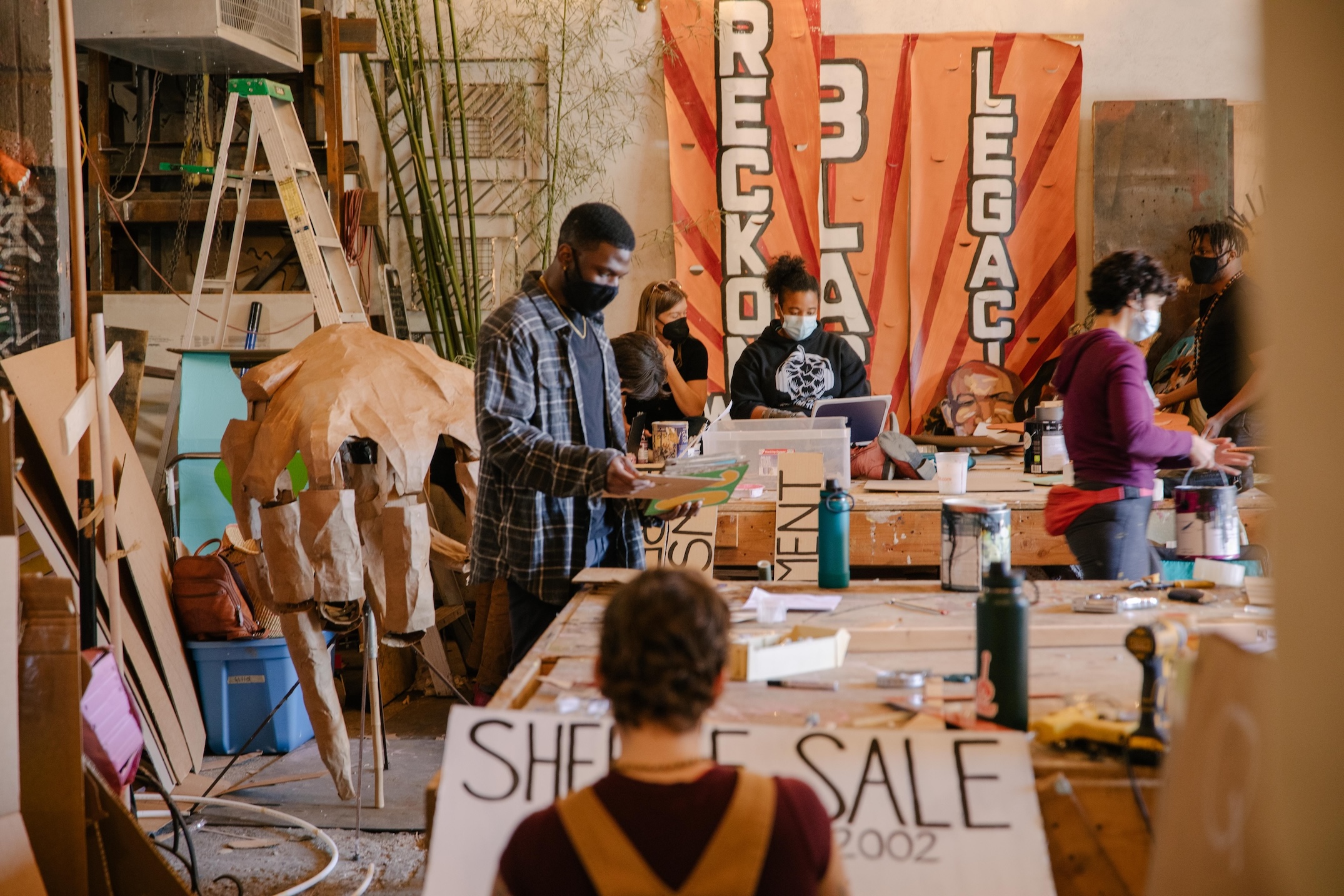
Spiral Q's Peoplehood art build
Practicing solidarity within philanthropy will take us all farther.
Collaboration in philanthropy is common. The catch is: the collaboration has to check all the boxes of each foundation’s guidelines and interests, and foundations almost always insist on retaining control over how funding decisions are made.
I have seen little evidence of funders’ willingness to make even occasional grants outside of their guidelines, in solidarity with community needs and dreams, or in recognition of the interconnectedness of the systemic issues we care about.
This also means that funders are not creating the conditions for others to be in solidarity with them.
Why does it matter, and what could it look like in practice?
Here I want to share an extraordinary example of our colleagues Emma Hertz at the HealthSpark Foundation and her colleague Chinwe Onyekere (formerly of HealthSpark, now at Vanguard). Emma and Chinwe came to us in 2021, interested in funding local media in Montgomery County, Pennsylvania where HealthSpark is focused. They asked if they could contribute money to our Community Voices Fund to learn alongside us, read and discuss proposals together, and take what they learned back to their work. As a regional funder, we were delighted to have partners who could help us expand our knowledge of and support for media projects and organizations in Montgomery County. This was a win-win for everyone—more than we could have predicted.
Following our Community Voices Fund collaboration, HealthSpark knew that it wanted to support the information needs of the Latinx/Latino community in their county, who struggle to find essential local information in Spanish. The Latinx/Latino community makes up 6.4% of the county’s population as of the 2020 census, and is the fastest growing demographic group in the county. HealthSpark wasn’t sure where to start, so we made a grant to help them hire the Listening Post Collective, who spent eight months interviewing and listening to community members to create a deeply-sourced and insightful report that HealthSpark and others could use to inform their grantmaking. Having evidence of what the community wanted and needed, HealthSpark made $60,000 in grants to four of the organizations named in the study.
Our partnership and friendship has continued to flourish in multiple other ways as well. IPMF participated in HealthSpark’s strategic planning process, while my team member Nuala Cabral and I have joined Chinwe’s class at UPenn on Philanthropy and Public Health Justice as guest speakers to discuss narrative justice. HealthSpark also worked with my team member Chris Capato in a mission-aligned investing cohort to help them consider a potential local investment, and build their knowledge around impact investing.
Oftentimes in philanthropy, the requests we make of one another—for information, funding, referrals, etc.—are shallow and transactional. By asking to be in community with IPMF, to learn from us, to wrestle with ideas and make decisions with us, Emma and Chinwe inspired us to want to learn from and partner with them. They created the conditions for our organizations to be—and to want to be—in solidarity with one another.
Their leadership reveals a different and more exciting path forward for the sector and for our community partners, as well as an opportunity for us all to reflect on what we lose when we aren’t willing to experiment or say yes to things outside of the rigid confines of our strategies and guidelines.
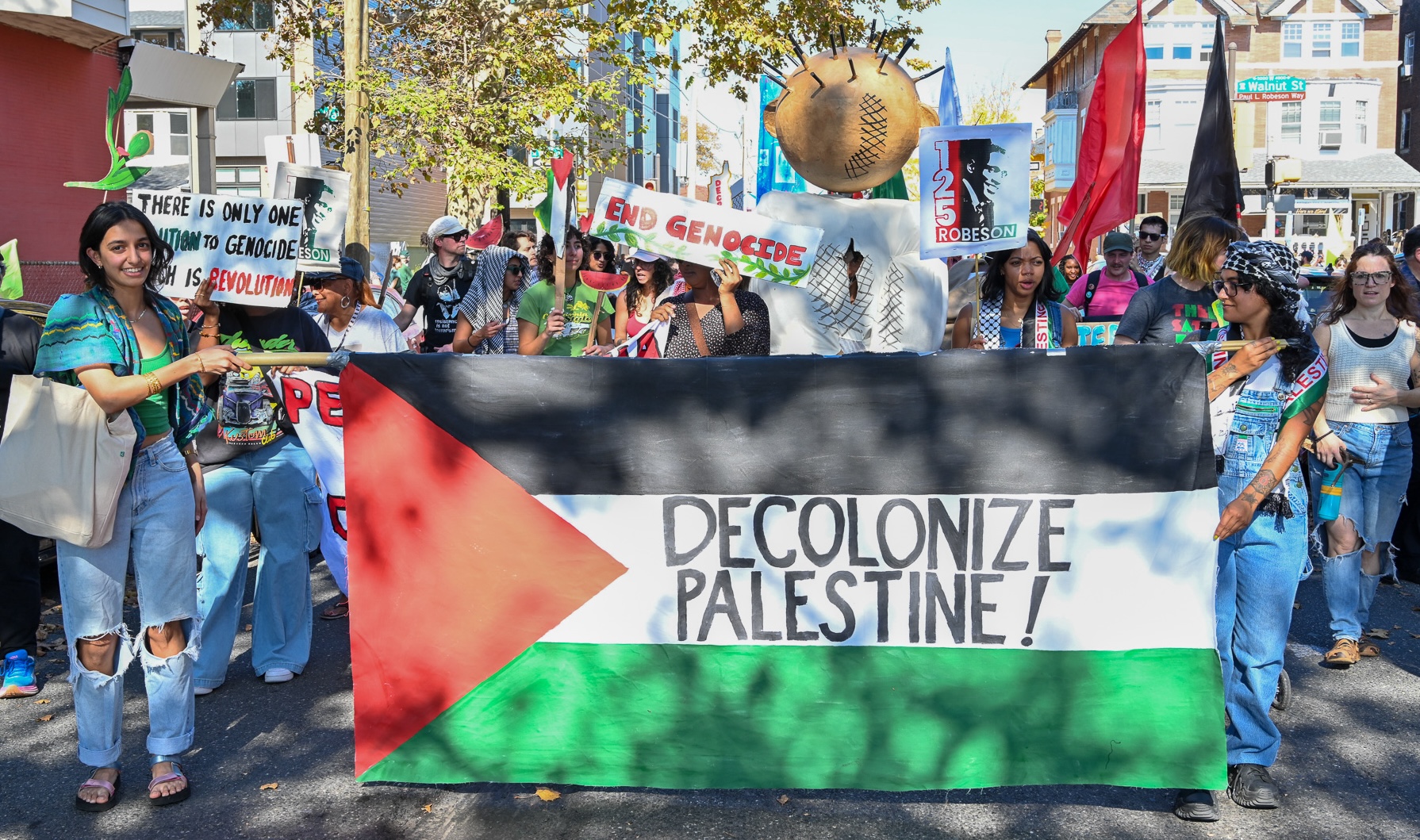
Spiral Q's 2023 Peoplehood Parade and Pageant
More than ever, we need to be courageous.
I want to share a story about a time I, and we, didn’t fully live up to our value of courage. It’s a story that involves a combination of some mistakes, inadequate structure in place, and how discomfort can dominate conversations and trespass on our values. It’s the kind of situation that is, I think, relatively common inside our organizations, and I hope that the more we (all) can shed light on how these things happen and what we learned, we equip ourselves to do better next time.
In late October of last year, I collaborated with staff to draft a statement of solidarity with Palestine, and make a plan for emergency grants for groups in Philadelphia working to contest and shift harmful anti-Palestinian narratives. It would not be our first grants to support Palestinian voices, but in light of and in response to the devastating bombing of Gaza, it would be our first time making a public statement.
I didn’t engage the board in a conversation about whether to make a statement, rather, I started by asking for their feedback on the draft. This was a misstep on my part. In doing so, I put them in a position to either agree to a statement or to rebuff staff who were ready (myself included) to make the statement public. Thankfully, they offered to meet quickly to discuss the statement and situation.
As a group, we were people with different perspectives about the unfolding events, occupying different positions of power inside and outside our organization, and struggling in good faith to come to agreement about what to say. The conversation largely revolved around concerns about backlash to the foundation’s reputation and with our partnerships, the potential for harassment, and perhaps even legal issues brought on by calling something a “genocide” that hadn’t yet been “legally defined” as a genocide. As people who could be personally and professionally impacted by the statement, these are rational concerns, and I understood them in that light. At the same time, I felt frustrated by the ways in which we in philanthropy allow our discomfort and our fear of imagined bad things happening get the better of us rather than having courageous conversations about power, violence, and oppression.
In the end, our statement called for a ceasefire instead of calling for an end to the genocide. As I reflect on the situation, I feel some personal failure to guide us to a place where we could stand strong in the history and material conditions of people trapped in Gaza. I could have put us on more solid footing by creating a better process, and grounding the conversation more clearly in our values. I also note—and it took me a while to come to this understanding—that I was clear that I had the authority to approve the grants, but I was not clear about whether I had the final say on the wording of the statement. This is important, because lack of clarity about who gets to decide on matters large and small is a pervasive problem inside most organizations, and we must work harder to be more explicit.
Perhaps it seems like a small concession to have landed on ceasefire, given that we did publish a statement and made $50,000 in grants to go with it. But shrinking from speaking the full truth in that moment, for me, stood in contrast to the people who put their bodies, their education, their careers, their lives on the line to end the genocide.
What communities need from those of us in philanthropy—staff and board—and what our extreme privilege and nearly unchecked power demands of us is an unwavering commitment to be courageous and to do what is principled over what is comfortable. As a field, we will continue to face many bad faith actors who harass us and threaten to sue us, like we’ve seen play out with the Fearless Fund. Every time we try to appease the bullies by quietly changing the language on our websites, or not making a grant we would have otherwise made, we all lose. Especially the most vulnerable in our communities.
After we published our statement, we received only positive feedback and many messages of gratitude from our community partners, and not a single harassing email, phone call or comment on social media. It mattered to our community that we spoke up. I hope that gives you strength to stand firm when your courage is tested too.
*****
This essay is an invitation to deepen the conversation around these and other questions and challenges in the philanthropic sector, to grapple with the contradictions, experiment and work in meaningful ways together, and push ourselves toward transparency and accountability. You can send me a note: molly@independencemedia.org.
Special thanks to Lizzy Hazeltine, Jamila Medley, Leticia Peguero, Adam Thomas, Omar Woodard, and the IPMF team for their encouragement and feedback.
Photo Credits: Janae Kindt for IPMF, Rachael Warriner and Spiral Q
